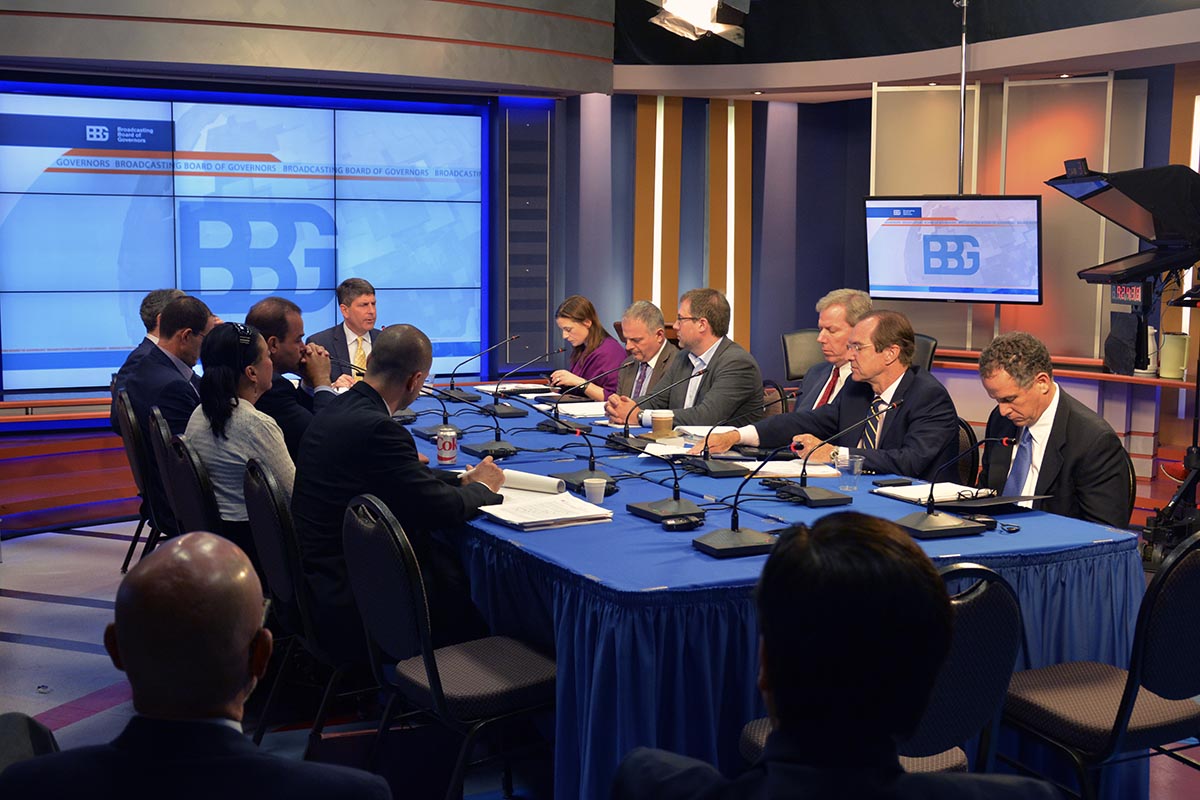Board Explores Strategy for Engaging Cuban Audiences

MIAMI – The Broadcasting Board of Governors met today at the Office of Cuba Broadcasting to examine opportunities for the Martís and their impact as Cuba experiments with incremental change while remaining the most isolated country in the Western hemisphere.
“It is important for us to look at Latin America,” Chairman Jeff Shell said in introducing the discussion. “Because although it is probably the most open political region in which we work, the media environment is not as free – particularly in Cuba.”
The meeting featured a deep-dive examination of the programs and distribution channels of the Martís, as well as a discussion with Cuban and Latin American experts. Myriam Celeya moderated the panel with the Executive Secretary for the Venezuela Unity Table (MUD) Dr. Gisela Parra, writer and journalist Carlos Alberto Montaner, President of the Interamerican Institute for Democracy (IID) Dr. Guillermo Lousteau, and IID Director Dr. Carlos Sánchez Berzain.
The experts discussed economic, political and social problems that might impede progress towards democracy in Latin America and explored possible solutions.
OCB President Carlos García-Peréz and other senior editors and journalists presented highlights on the network’s impact on its audiences, the local media and the local government.
Shell commended the staff of OCB on the quality of their journalism and ability to connect with audiences, despite not being able to consistently poll in the field, saying, “I’m reminded that we operate in countries that don’t want us there, and so we can’t get in and get good ratings information.”
Despite these research restrictions, OCB’s Natalia Crujeiras and Oscar Rodriguez pointed out that radio and TV Martí audiences respond en masse to a variety of contests and polls, and that visits to Martinoticas.com have increased 480% in the past three years.
In addition to the in-depth look at the Martís and Latin America, the Board held a business meeting. Board members remarked on the hazards faced by BBG journalists, and Shell noted numerous recent incidents in Ukraine and Crimea, Belarus, Azerbaijan, Macedonia, Kazakhstan, Afghanistan, Cambodia, China and Iraq, and he called upon local authorities to do more to support and protect all working journalists.
The Board also honored former BBG governor Susan McCue, who stepped down in May.
“Susan was tireless supporter of press freedom,” said Shell. “She was always clear-eyed about importance of a free international media environment. She will be missed.”
In addition, the Board adopted a resolution recognizing the work of the RFE/RL Balkan Service, noting that the service would not be closed, as had been previously proposed.
A video recording and documents from the meeting will be available on the BBG website.
